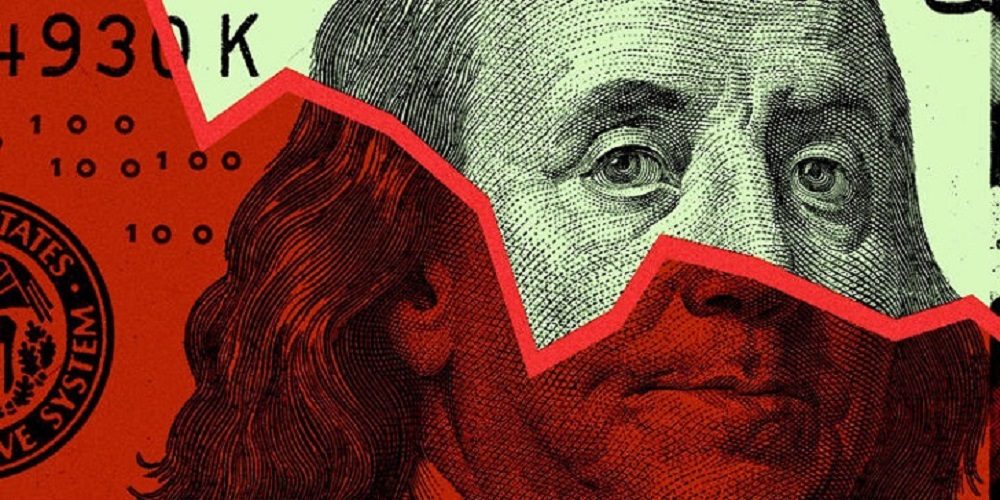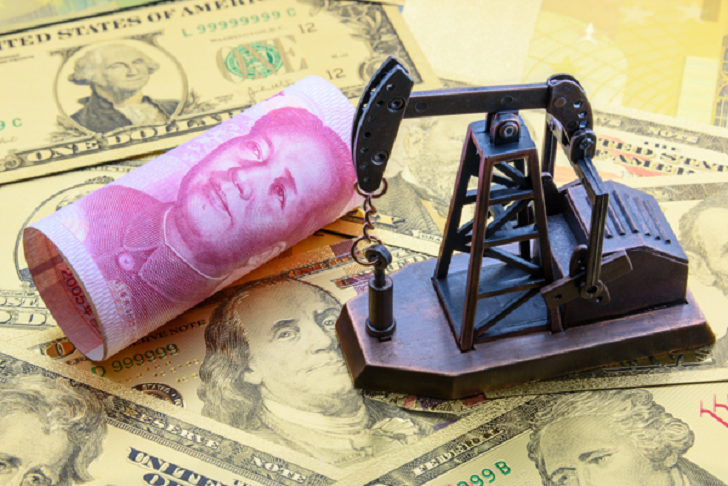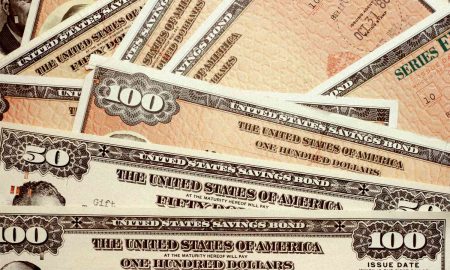
The Saudi Petrodollar Collapse and Global Economic Stability

Recently, the financial architecture that has long stabilized global economies shows signs of profound change. At the heart of this transformation is the potential collapse of the Saudi petrodollar system—a phenomenon that could redefine international monetary dynamics and economic stability worldwide.
The Emergence of the Petrodollar System
After dismantling the Bretton Woods system in 1971, which decoupled the US dollar from gold, a new financial framework was established. This system, known as the petrodollar system, arose from an agreement between the United States and Saudi Arabia.

@aplasticplant | In exchange for military support and security, Saudi Arabia agreed to price its vast oil supplies exclusively in US dollars.
In exchange for military support and security, Saudi Arabia agreed to price its vast oil supplies exclusively in US dollars and to reinvest its oil proceeds in US government securities. This arrangement ensured that the US dollar remained dominant in global financial markets.
Saudi Petrodollar: A Cornerstone of US Economic Strategy
The Saudi petrodollar has played a pivotal role in maintaining the US dollar’s status as the world’s leading reserve currency. The system has effectively buoyed the US economy by mandating the use of dollars for oil transactions, allowing it to accrue substantial deficits without the typical economic consequences. The U.S has leveraged this system to wield considerable influence over global economic terms, ensuring that the dollar remains central in international trade.

Christine Roy | Unsplash | The US has leveraged Petrodollar to wield considerable influence over global economic terms, ensuring that the dollar remains central in international trade.
However, the unwavering reliance on the petrodollar is beginning to show cracks. The geopolitical landscape is shifting, with significant economies like China and Russia seeking alternatives to the US-dominated financial system. These shifts are not just theoretical but practical responses to a changing world where economic leverage is increasingly seen as a source of national security.
The Impact of Diversifying Energy Transactions
The potential collapse of the Saudi petrodollar signals a critical shift. Countries increasingly resent their forced reliance on the dollar, and the US’s ability to exert economic pressure through sanctions has prompted nations to seek alternative transaction methods. This movement is most clearly seen in the growing adoption of the yuan in the Shanghai International Energy Exchange, where countries can transact in the Chinese currency, bypassing the dollar.
This transition from the Saudi petrodollar to alternative systems like the petroyuan introduces a new era of economic relations. It suggests a future where the dollar’s influence is diminished, making room for a multipolar currency framework that better reflects the 21st-century’s diversifying power dynamics.

International Man | This transition from the Saudi petrodollar to alternative systems like the petroyuan introduces a new era of economic relations.
The Broader Economic Implications
The implications of a weakening Saudi petrodollar system extend far beyond currency exchanges. A shift in the foundational currency for global oil trade could lead to significant economic volatility.
The US might face higher interest rates and a more challenging economic environment as it loses the ability to finance deficits at low costs. For emerging economies, the transition may offer an opportunity to assert more control over their financial destinies. Still, it also introduces new risks associated with fluctuations in currency values and trade relations.
The decline of the Saudi petrodollar system could usher in a period of financial uncertainty as countries and markets adjust to a new norm. This adjustment period could be marked by economic turbulence as the advantages the US enjoyed through dollar dominance diminish and other nations navigate the complexities of transitioning to more diverse monetary practices.
More in Loans & Mortgages
-
`
Everything You Need to Know About an Assumable Mortgage
What is an Assumable Mortgage? Whether you are a buyer or a seller, understanding the concept of assumable mortgages can open...
June 6, 2024 -
`
Layoff vs. Fired – Understanding the Crucial Differences
When it comes to job loss, understanding the distinction between being layoff vs. fired is crucial. While both situations result in...
May 30, 2024 -
`
When Are Business Taxes Due 2024? Essential Dates and Deadlines
Tax deadlines can be daunting, but fear not! Let’s break down everything you need to know to stay on top of...
May 22, 2024 -
`
How Much Does Jeff Bezos Make Per Hour? It’s More Than You Think!
Jeff Bezos, a name synonymous with innovation and wealth, stands as one of the world’s richest individuals. While Bernard Arnault and...
May 16, 2024 -
`
What is Portfolio Investment Entity (PIE) and How Can it Benefit You?
In the intricate world of finance, individuals seek avenues to optimize their investments while minimizing risks. One such avenue gaining traction...
May 9, 2024 -
`
What is a Bank Statement? Understanding its Definitions, Benefits, and Prerequisites
Ever wondered where your money goes? A bank statement is like a financial report card, giving you a clear picture of...
April 30, 2024 -
`
Branded Content: A Genuine Way to Connect With Your Audience
Have you ever binge-watched a series on Netflix, only to later realize that the beverage everyone’s sipping on is that brand...
April 23, 2024 -
`
What Car Does Jeff Bezos Drive? Find Out Inside His Exclusive $20 Million Collection
Have you ever wondered what car does Jeff Bezos drive? This man’s tastes in vehicles are as expansive as his business...
April 17, 2024 -
`
Redeeming Your Savings Bonds – Here’s What You Need to Know
Today, savings bonds stand out as a steadfast option for many Americans. If you are pondering over the process of U.S....
April 11, 2024















You must be logged in to post a comment Login